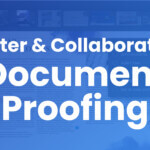There are a lot of articles out there on boosting your productivity — certainly, you’ll find a whole bunch on our blog. We are, after all, very focused on ideas like creativity, collaboration, and productivity. But what about the science behind productivity? In particular, from a psychological perspective, what are the different ways you can apply theory to boost your productivity?
While not everything works for everyone, if you find yourself lacking some motivation — give some of these science-backed ideas a shot to see what works. Here are our top tips for boosting your productivity and the psychology behind them.
Eat Before You Work
You likely grew up learning that breakfast is the most important meal of the day. It’s absolutely essential to nourish your brain so it’s working at full capacity. Our brains burn up to 20% of calories we consume at any given time. If you’re not providing it with enough calories, you won’t perform nearly as well. Simple as that.
Starting your workday on an empty stomach impairs your ability to make good decisions. Researchers from the University of Dundee found that hunger significantly affects our decision-making. When they gave participants decisions to make, the group in the ‘hungry’ condition was more impatient and more likely to settle for a small reward that came sooner than a larger one promised in the future. Hunger can cause us to make choices we might not otherwise, which can affect all aspects of our lives.
It’s not that surprising. Our physiological needs have to be met before we’re able to focus on less pressing needs. Hunger needs are at the bottom of Maslow’s Pyramid. We can’t expect to achieve more complex needs when the basics have not been met. (While Maslow’s pyramid structure has been critiqued more recently, the basic premise is still relevant here.)
Write Out SMART Goals
In 1981, George Doran created a system to help people with goal setting and to be more productive. You have certainly heard of his SMART goals system. To boost your productivity, the idea is to make sure your goals are:
- Specific
- Measurable
- Attainable
- Realistic
- Time-Bound
This simple mnemonic is a great way to help you be productive and set clear expectations when you’re goal setting. Today, his SMART goal system is used in all sorts of industries by project managers and personal development coaches alike. While a seemingly simple 5 questions about your plan, what SMART goals have is inherent accountability, because, from the get-go, you’ve done your due diligence.
Here’s the doctor himself talking his defining acronym:
Break Things Down Into Smaller Tasks
Which one sounds easier: Writing out a 1000+ word blog post or writing an outline? Clearly, the latter, which is how I approach all of my writing.
When you aim to accomplish broad tasks, you’re actually making your life a lot more difficult. That’s because consciously or not, you come to expect the tasks to be more difficult—and potentially harder to drum up the motivation to see it through. In psychology, this phenomenon is referred to as Expectancy Theory.
To counteract the idea that hard tasks take more effort, you need to break them into smaller, more manageable chunks. That way, the expected reward is easier to achieve, and conversely, the expected effort is smaller, creating a greater vehicle for building momentum.
Get Harder Tasks Done First
To complement the idea of breaking things down to smaller tasks, it doesn’t mean you need to make them all easy tasks. You might think doing easier tasks first helps you get in the groove and keep going. This doesn’t necessarily seem to be the case. In fact, in a study by Harvard Business School, they looked at busy ER doctors and found that those who took only the easier patients were less productive in the long term.
This is also referred to as “task completion bias” because we want the feeling of writing off a lot of items on our to-do list. That, unfortunately, means we are neglecting more important and more difficult tasks.
Instead of doing lots of smaller tasks first, try organizing your to-do list more strategically to actually get stuff done. One good idea here is to operate with a 1-3-5 rule, creating a to-do list prioritizing one big, three medium, and five small tasks.
Start With a Short Time Limit
Delaying the start of your task is a key difference between procrastinators and non-procrastinators, according to a study in Psychology Frontier. So, if getting started is the hardest hurdle for you to get through, setting a timer and tracking your hours might help. Once you learn how to do this, you’ll be getting everything you need to get done in no time. One free tool I love for this is Clockify.
Personally, this is one of my favorite strategies. If I’ve been putting something off, then I’ll tell myself to only work on it for 10 minutes and then take a quick break. (As you probably suspect, almost every time I start something, I end up working for much longer.)
Take More Breaks
That seems counterintuitive, doesn’t it? Well, it really works.
In a study from North Carolina State University, researchers found that people who take microbreaks at work are more productive. This is likely also because it keeps people more engaged throughout the workday. It’s also likely connected to the Expectancy Theory mentioned earlier since it reduces the effort you expect you will need.
The Pomodoro Technique is one way you can try this for yourself. Their default is to set a timer to work for 25 mins, then you take a 5-minute break after it goes off.

Have Someone Hold You Accountable
Much like a gym partner will keep you on track, having someone keeping you accountable is an easy shortcut to productivity.
This can work well if you have a friend or partner who is also trying to stay focused. Way back in 1920, Floyd Henry Allport conducted a study that showed simply working in groups boosted productivity, even without talking to each other. Of course, there is a risk a work buddy is going to distract you, so try to pick someone who is going to keep you focused.
This can of course be more difficult to do in person as many of us are still working from home. Gather.Town is a web-based application that’s trying to create a real office experience in the virtual space (I’m a big fan!). Decorate the virtual office, invite your team, create a character to explore and work together in real-time. Collaborative tools are the next best thing when you can’t work in person. And often better. Whether Slack or Trello, Figma, or, yes, ReviewStudio, choosing the right collaborative tools can improve productivity through accountability.
Change Your Environment
How many times have you wandered into the kitchen and opened the fridge for no particular reason?
As many of us are working from home, there are a lot more distractions than before which can derail our productivity.
One reason this is happening is because of a thing called Situational or Context-Dependent Memory. We form our memories and habits based on locational cues that can trigger them.
If you’re finding yourself particularly distracted by a trigger in your space (human, feline, or otherwise), then switching it up and working somewhere else can help you focus. Change the room you work in at home, office, or moving to a local cafe (where possible of course) to remove the distraction and keep on task.
Another tip is to try standing to boost your productivity. According to one study, from Texas A&M University, call centre workers who stand were 42% more productive than those who were sitting. So, if you don’t have a standing desk yet, it might be time to invest in one. Changing your environment, if only from sitting to standing, can do the trick.
Don’t Beat Yourself Up… Too Much?
This might sound cheesy, but it’s actually something psychologists have studied. One study from Elsevier looked at self-forgiveness and procrastination in university students before 2 exams. When participants forgive themselves for procrastinating before the first exam, they were better at preventing it in the future.
If you’re more prone to procrastination, it might not even be entirely your fault. Some personality types are also just better at being productive than others. In a study published in The Economic Journal, people who score higher on the personality factor for conscientiousness are more productive than those with lower scores. As an added bonus, they often earn more than their peers as well.
So, beat yourself up just a bit, then forgive yourself and you’ll (probably) get rich.
Reward Your Progress
Another great way to boost productivity is by gamifying your work. I used to have terrible study habits. A little app called Habitica saved me. The mobile app helped me understand how to break down my tasks and with each item crossed off my to-do list, I received a virtual reward, reinforcing my positive behavior.
In psychology, this is referred to as Positive Reinforcement and it’s the same way we encourage behaviours in our pets. We’ve known this since 1947, in B.F. Skinner’s classic study on operant conditioning. By rewarding specific behaviours in pigeons, he made them likely to engage in that same behaviour again.
Boosting Your Productivity
So, whether you’re working solo or collaboratively, mastering your productive habits is key to getting your projects done. And productivity is mostly a mind game. Whatever kind of project you are working on, using some of these science-backed tricks can help your focus and keep you on task.
There are obvious upsides to boosting your productivity whether financial, professional, social and so many other benefits. Keep in mind, pun intended, that while the brain isn’t a muscle, we are still exercising it and we need to be careful not to overdo it. At a certain point, you can be too productive and that’s when burnout, on a mental and physical level, becomes an issue.
Hopefully, we can all learn to stop right before we are too productive.








